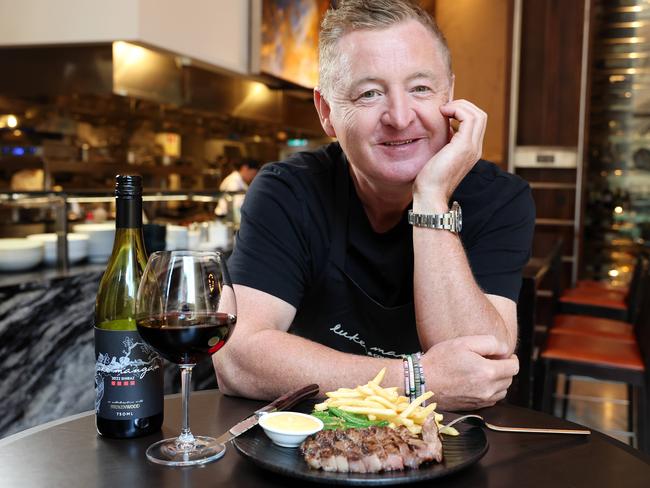Luke Mangan: Why chefs should go back to school to encourage next generation of culinary talent
Australia’s hospitality sector is grappling with a significant shortage of apprentice chefs, baristas and waiters – and Australians would be first choice for the 36,000 jobs advertised, writes Luke Mangan.
Opinion
Don't miss out on the headlines from Opinion. Followed categories will be added to My News.
Australia’s hospitality sector is grappling with a significant shortage of apprentice chefs, a problem that has been exacerbated by a combination of pandemic-related disruptions, industry burnout, and changing workforce dynamics.
As the country recovers from the impacts of Covid-19, restaurants, cafes, and hotels are finding it increasingly difficult to recruit and retain the next generation of culinary talent.
The shortage has been building for several years, with many restaurants and culinary businesses struggling to find young people willing to commit to long apprenticeships.
These apprenticeships, typically lasting three to four years, require a blend of hands-on kitchen work and classroom training. However, the demanding hours, intense work environment, and relatively low starting wages compared to other industries have deterred many potential candidates.
According to the Australia Restaurant & Cafe Association (ARCA), backed by Seek.com.au data, there are currently nearly 14,000 unfilled cook and chef positions across the country, which is affecting the ability of businesses to operate at full capacity.


Now I’m on the board of this association along with Wes Lambert, Chris Lucas, to name a few to try make a difference for our industry.
We all want to employ Australians first but if they don’t apply for the 36,000 jobs advertised – if it’s for a chef, barista or waiter – we need to look at other alternatives like visa workers!
It’s a massive business and contribution to the economy.
Several factors have contributed to this growing problem. First, the pandemic significantly disrupted the culinary training system. Many apprentices were forced to pause or abandon their studies as restaurants closed and face-to-face learning was limited.
Moreover, many chefs and hospitality workers left the industry during the pandemic, either retiring early or moving to less physically demanding fields, further shrinking the pool of experienced mentors and trainers for new apprentices.
Additionally, the perception of the chef profession as a tough, low-paying job with limited career progression has deterred young people from pursuing it.
The long hours, stressful work environment, and physical demands of the job are often cited as major deterrents. While the industry has made efforts to improve working conditions and wages, the challenge remains in attracting new talent.

To address the shortage, industry leaders are calling for more government support, including financial incentives for employers who take on apprentices and greater investment in vocational education.
ARCA CEO Wes Lambert says “the upcoming budget and federal election must include apprentice and traineeship incentives, not just free TAFE”.
Without swift action, Australia’s vibrant food scene risks being stifled, with many businesses unable to find skilled chefs to meet growing consumer demand.
In NSW I’ve approached Steve Whan, the skills minister, who said to James Willis on 2GB this week that they know they are behind the eight ball in getting into schools and selling apprenticeships to kids and parents.

However, we have tried to pitch many times the inspired idea to him to help government educate, innovate and motivate for the apprenticeship system by having the best chefs and hospitality people willing to commit to go to schools and TAFEs around our state to educate kids at schools and the parents on how rewarding hospitality and tourism is.
But, sadly, no uptake from the government wanting the best in the industry to help the industry.
Do you have a story for The Telegraph? Message 0481 056 618 or email tips@dailytelegraph.com.au





